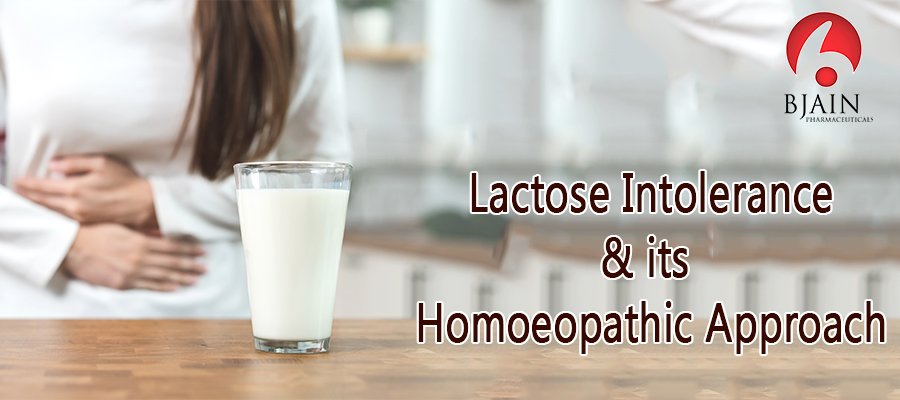Key points
- Lactose intolerance refers to a lack of ability to digest lactose, a sugar of milk and milk products.
- This medical condition frequently runs in families and affects people of all ages.
- Lactose intolerance is most prevalent among different types of American populations.
- There is no cure for lactose intolerance in conventional medicine, although dietary adjustments can control symptoms.
Food is one way that individuals showcase their affection. Food is often used to express affection, whether it’s your mother urging you to drink that glass of milk or your significant other bringing you out on a wine and cheese date.
However, your favorite meals may not always reciprocate your affection, especially when you are lactose intolerant and the food you love includes lactose.
We all have that one buddy who cannot metabolize lactose yet insists on completing that pizza slice, assuming they will deal with the repercussions later.
Lactose Intolerance and Its Impact on Health
Lactose intolerance prevents people from properly digesting the sugar (lactose) found in milk. As a result, people have diarrhea, gas, and bloating after consuming or drinking dairy products.
Lactose intolerance is often caused by a lack of an enzyme generated in your small intestine called lactase. Lactase is required to break down lactose into glucose and galactose, which can enter into the circulation. You can have low lactase levels and yet digest milk products. However, if your levels are too low, you become lactose intolerant, which causes discomfort when you eat or drink dairy.
When somebody with lactose intolerance takes dairy products, their body lacks the enzyme lactase, which breaks down lactose into glucose and galactose.
As an outcome, undigested lactose passes from the small intestine to the large intestine.
There are several different types of bacteria in the colon that support digestion. These bacteria decompose or degrade the undigested lactose. This fermentation process generates gases such as methane, hydrogen, and carbon dioxide, in addition to short-chain fatty acids.
Types of Lactose Intolerance
Primary Lactose Intolerance:
It is the most prevalent kind, which is frequently genetically determined. Many people are born with enough lactase enzymes to process lactose. However, as they grow older, lactase synthesis diminishes, resulting in lactose intolerance in adults. This type is common in some populations, particularly those of Asian, African, or Native American origin.
Secondary Lactose Intolerance:
In contrast to primary lactose intolerance, this kind develops and is the result of small intestinal damage or sickness. Celiac disease, inflammatory bowel disease (IBD), and infections can all cause intestinal wall destruction, lowering lactase output. Lactose tolerance can get better once the root of the issue has been treated.
Symptoms of Lactose Intolerance
- Bloating
- Flatulence
- Diarrhoea
- Nausea
- Stomach Cramps
Reasons behind the Increase of Lactose Intolerance in India
Milk has been a staple in the Indian Diet or to be more specific, the north Indian Diet. Tolerance of milk in the Indian population was never in doubt. Recently we have observed an increase in the number of children who are severely lactose intolerant. The most basic question came to us, are we becoming Lactose Intolerant? The answer is “No”. We are not becoming lactose intolerant. We were lactose intolerant and some studies suggest that 1 out of 3 individuals is intolerant to milk.
The genetic makeup speaks for itself. A study conducted by a student of the University of Cambridge that the genetic mutation for the toleration of milk is only found in less than 1 out of 5 tested subjects. Another study says that approximately 18 percent of people in India who are consuming milk are digesting it completely.
Symptoms of Lactose Intolerance are intense in the European population and comparatively milder in Indian people.
Difference between Lactose Intolerance and Lactose Malabsorption
All of you with lactose intolerance also have lactose malabsorption, although not everybody with lactose malabsorption has lactose intolerance. Another way to think of it is that malabsorption occurs in your small intestine, whereas symptoms of food intolerance occur later in your big intestine.
The majority of your food’s nutrients are absorbed in your small intestine. Your small intestine converts nutrients into tiny molecules that can pass past the intestinal wall and into your circulation. Everything that is not absorbed in your small intestine travels to your big intestine.
Undigested sugar molecules in the large intestine generate more water and gas. They cause your large intestine (colon) to secrete more fluid to assist them pass. They release gas when your colon’s bacteria digest them. This might cause digestive symptoms including diarrhea and gas discomfort.
Role of Homeopathic Medicine in Lactose Intolerance
Homeopathic medication boosts the immune system and decreases the body’s defensive reaction to lactose. The benefits of these medications can be evident in the decrease of intestinal irritation, inflammation, and symptoms. Homeopathic remedies benefit lactose intolerant people by improving milk digestion and enhancing quality of life by preventing future bouts of bloating and diarrhea. They also boost calcium and mineral absorption. They stimulate the immune system and speed up metabolism. They contribute to the effective absorption of minerals and salts from meals. Visit our Homeopathic Medicine online.
- AETHUSA is a great medicine for children’s vomiting. The youngster vomits right after eating and breastfeeding. The toddler collapses in exhaustion. The vomiting of milk is similar to green curd. Feels hungry shortly after vomiting. Greenish diarrhea occurs after consuming dairy products. The youngsters are irritated, anxious, and sobbing. Consumption of milk induces green-colored diarrhea with undigested particles.
- NATRUM CARBONICUM: Treats diarrhea caused by milk consumption. The stool is yellow, watery, and flowing, with a bad odor and occasionally blood. Severe need to pass feces, stomach colic, and fetid flatus.
- CALCAREA CARBONICA is used to treat vomiting after drinking milk. Nausea, chilly sweat, and shaking accompanied abdominal distention. Vomiting, severe cramps, and abdominal pain.
- LAC DEFLORATUM: It treats nausea, vomiting, and headaches caused by drinking milk or other dairy products. Obstructive constipation with big stools. Exhausted by overstraining for stool.
- MAGNESIUM MURIATICUM: It treats chronic lactose intolerance and the inability to digest milk and milk products. Blisters appear on the lips and tongue after drinking milk. The tongue feels burned and scalded.
Conclusion:
Lactose Intolerance has been abundant in the Indian population, especially in South India. The reason behind the boom in the number of cases of Lactose intolerance is an increase in awareness due to Western influence. Another reason could be the use of fermented forms of milk that tend to reduce the reaction of lactose intolerance. Any reason can cause it but the solution is given in homeopathy. Homeopathy works holistically and balances the altered reaction towards environmental factors.
Frequently Asked Questions (FAQs)
Q. 1. What is the homeopathic remedy for lactose intolerance?
Ans. There are numerous medicines available in homeopathy for lactose intolerance. In Homoeopathy, your doctor will also consider the physical makeup and general tendencies before prescribing the drug. Some of the common medicines for lactose intolerance are mentioned above.
Q. 2. What is the best treatment for lactose intolerance?
Ans. There is no conventional treatment available for the treatment of lactose intolerance. It is advised to avoid any dairy products. Homeopathy treats the abnormal reactions of the body against any natural stimulus. It can help you correct the abnormal tendencies of the body.
Q. 3. Is there a permanent cure for lactose intolerance?
Ans. Yes, Homoeopathy can help you with lactose intolerance and after a proper homeopathic treatment, it can manage your susceptibility to dairy products.

Dr Kiran Swami
Dr. Kiran Swami, BHMS, MD (Hom.), a Research Officer at BJain Pharmaceuticals Pvt. Ltd., holds degrees from Nehru Homeopathic Medical College, Delhi, and Dr. Sarvepalli Radhakrishnan Rajasthan Ayurved University, Jodhpur. With expertise in homeopathy and a passion for research, she drives innovation in holistic healthcare solutions.


